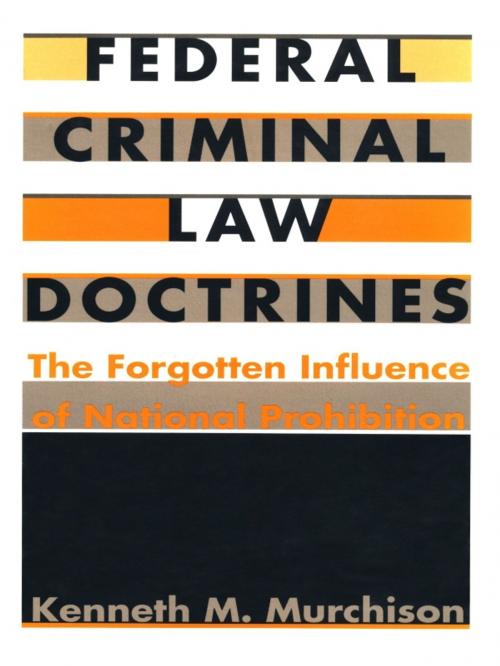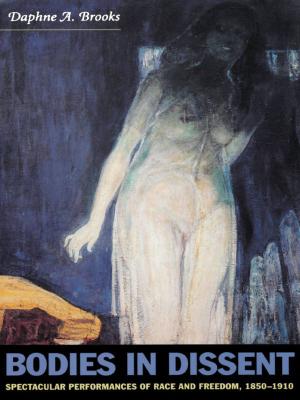Federal Criminal Law Doctrines
The Forgotten Influence of National Prohibition
Nonfiction, Reference & Language, Law, Civil Procedure| Author: | Kenneth M. Murchison | ISBN: | 9780822379164 |
| Publisher: | Duke University Press | Publication: | November 15, 1994 |
| Imprint: | Duke University Press Books | Language: | English |
| Author: | Kenneth M. Murchison |
| ISBN: | 9780822379164 |
| Publisher: | Duke University Press |
| Publication: | November 15, 1994 |
| Imprint: | Duke University Press Books |
| Language: | English |
This book offers a close look at the development of legal thought during the era of prohibition and documents the impact of prohibition on law as an intellectual discipline. Kenneth M. Murchison examines changes in federal criminal law doctrines from 1918 to 1933 in light of recent historical scholarship on prohibition and its impact on American society. He identifies these federal doctrinal developments as an important but ignored legacy of prohibition and describes how these changes continue to effect contemporary law.
In this detailed examination, Murchison considers a portion of the Supreme Court’s work prior to the New Deal crisis, a period insufficiently considered until now. Among the developments he discusses are those relating to the defense of entrapment, the Fourth Amendment’s protection against unreasonable search and seizure, the Fifth Amendment’s prohibition against double jeopardy, property forfeitures, and the jury trial guarantees for criminal proceedings. His analysis reveals a court less rigid, less consistently divided along modern ideological lines, and more tolerant of governmental authority than traditional wisdom would suggest. Thus, Murchison offers a framework for a revisionist view of the Supreme Court’s activities during this period.
Exploring an important connection between the Eighteenth Amendment, the Volstead Act, and the development of federal criminal law, this book documents what was arguably the nation’s first criminal law revolution at the federal level. Explaining the modern origins of doctrines that still inform federal criminal law, Murchison also provides a case study of how legal doctrine responds to changing social conditions. Federal Criminal Law Doctrines will add immeasurably to the work of historians and legal scholars alike.
This book offers a close look at the development of legal thought during the era of prohibition and documents the impact of prohibition on law as an intellectual discipline. Kenneth M. Murchison examines changes in federal criminal law doctrines from 1918 to 1933 in light of recent historical scholarship on prohibition and its impact on American society. He identifies these federal doctrinal developments as an important but ignored legacy of prohibition and describes how these changes continue to effect contemporary law.
In this detailed examination, Murchison considers a portion of the Supreme Court’s work prior to the New Deal crisis, a period insufficiently considered until now. Among the developments he discusses are those relating to the defense of entrapment, the Fourth Amendment’s protection against unreasonable search and seizure, the Fifth Amendment’s prohibition against double jeopardy, property forfeitures, and the jury trial guarantees for criminal proceedings. His analysis reveals a court less rigid, less consistently divided along modern ideological lines, and more tolerant of governmental authority than traditional wisdom would suggest. Thus, Murchison offers a framework for a revisionist view of the Supreme Court’s activities during this period.
Exploring an important connection between the Eighteenth Amendment, the Volstead Act, and the development of federal criminal law, this book documents what was arguably the nation’s first criminal law revolution at the federal level. Explaining the modern origins of doctrines that still inform federal criminal law, Murchison also provides a case study of how legal doctrine responds to changing social conditions. Federal Criminal Law Doctrines will add immeasurably to the work of historians and legal scholars alike.















